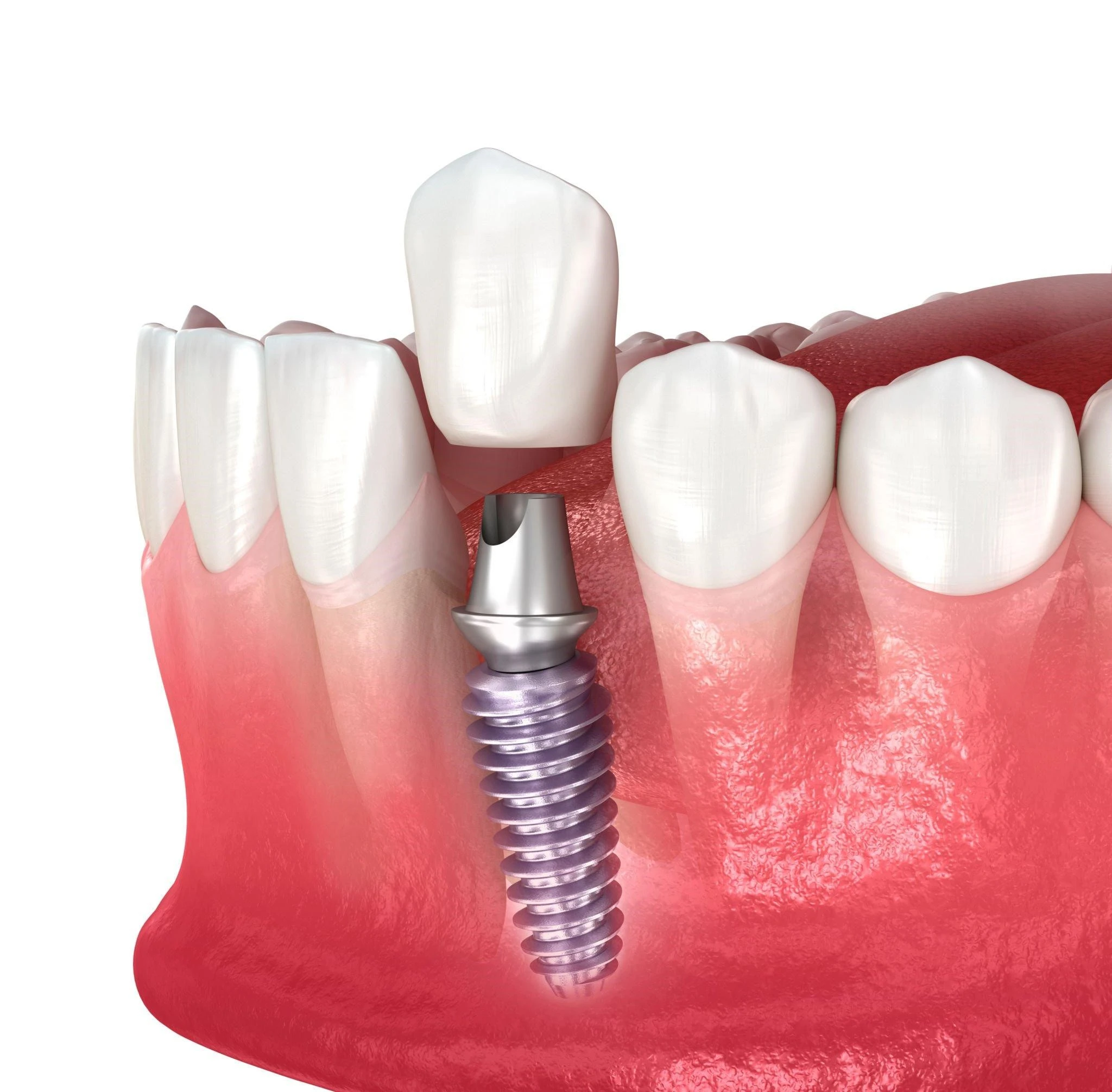Dental Implant
Having dental implants can indeed make you feel like smiling once more. This process restores your confidence and oral health by replacing lost teeth. It’s amazing. The journey to achieving your new smile doesn’t conclude in the dentist’s chair. After the procedure, self-care, including maintaining a nutritious diet, is of paramount importance.
Right After Surgery Diet
Take extra care of your mouth for the first 24 to 48 hours after dental implant surgery. After getting a tooth pulled, you might experience pain, swelling, and discomfort. But fear not—it is controllable. Use only soft foods and beverages at this time, like:
- Soups
- Ice cream
- Mashed potatoes
- Smoothies
- Protein-rich yogurts
Always allow hot foods and beverages to cool before consuming them. Straws should not be used, as they can interfere with the healing process. Your gums are sensitive, so take good care of them.
Postoperative Days 3–7
You can eat slightly firmer foods starting from day three until day seven after surgery. Think about choices such as:
- Scrambled eggs
- Omelets
- Soft cheeses
- Well-cooked pasta
- Soft fruits (peaches, pears)
- Oatmeal and muesli (when thoroughly cooked)
- Boiled or steamed vegetables
As your diet grows, be watchful and mindful of any pain you experience when eating. Foods that might become lodged in your healing gums must be avoided.
Weeks 2 and Beyond
Following dental implant surgery, it may take several weeks for full healing. Continue introducing harder foods more gradually during this time. Pay attention to your body; if eating a certain food causes pain, it’s not the right time to consume it.
When you begin eating harder foods, remember that dental implants can be damaged. Steer clear of foods that are overly chewy, crunchy, or hard, as they may harm your implants.
Dietary Guidelines for Quick Recoveries
To fully recover, you need to consider your diet and the foods you should eat.
- Protein Intake: Protein plays a crucial role in combating infection and supporting tissue formation post-surgery. To enhance your recovery, incorporate protein-rich foods such as chicken, fish, and yogurt into your diet.
- Nutritional Balance: A well-rounded diet is essential for your overall healing process. Ensure you receive a variety of vitamins and minerals to promote optimal recovery.
- Temperature: Pay attention to the temperature of food and beverages. Let hot items cool down in the beginning to avoid discomfort.
- Straws: Don’t use straws because they can pressurize your mouth and may loosen blood clots.
Conclusion
Dental implant surgery is a common procedure for improving oral health and smiles in the UK. Following this procedure, a well-planned diet is crucial for a swift recovery. Begin with soft foods, gradually progressing to firmer options, and stay attuned to your body’s signals throughout. With proper care of your dental implants at GK Dental Implants and Cosmetic Clinic, you can soon indulge in your favorite foods once again.
Frequently Asked Questions (FAQs)
How do dental implants function, and what are they?
Dental implants Dumfries are artificial roots made of titanium and other safe materials. They are used as a response. To give replacement teeth a strong foundation, they are surgically implanted into the jawbone. The implant and bone combine over time to form a strong anchor for future teeth.
What is the duration of the dental implant surgery procedure?
The dental implant process takes a few months, from the first meeting to the final result. The actual surgical implant placement typically requires one to two hours per implant. Before the last teeth are attached, the bone may need to heal and integrate. This process could take several months.
Do dental implant procedures hurt?
Usually, local anesthetic is used during dental implant surgery to ensure that you don’t experience any pain. After surgery, you might feel uncomfortable and notice swelling. But you can usually manage these side effects by taking pain medicine. They should go away within a few days.
Is there an age limit for receiving dental implants?
The answer is that eligibility for dental implants is not determined by age alone. The patient’s overall dental health and bone density are most important. Adults of all ages may benefit from dental implants if they have a healthy mouth and sufficient bone support.
In the UK, how long do dental implants last?
In response, dental implants are intended to be a permanent fix. They can last for decades or even a lifetime with the right upkeep. To ensure their longevity, regular dental checkups and proper oral hygiene practices are crucial.
After dental implant surgery, are there any dietary restrictions?
Yes, it’s advisable to maintain a soft food diet right after surgery to prevent placing too much pressure on the healing implants. Follow your dentist’s advice and slowly return to your regular diet as you heal.
Is it possible to replace several lost teeth with dental implants?
One missing tooth, several missing teeth, or even an entire arch of missing teeth can all be replaced with dental implants. Dentists can use implants to support dentures or bridges. This improves functionality and restores your smile.


One Response